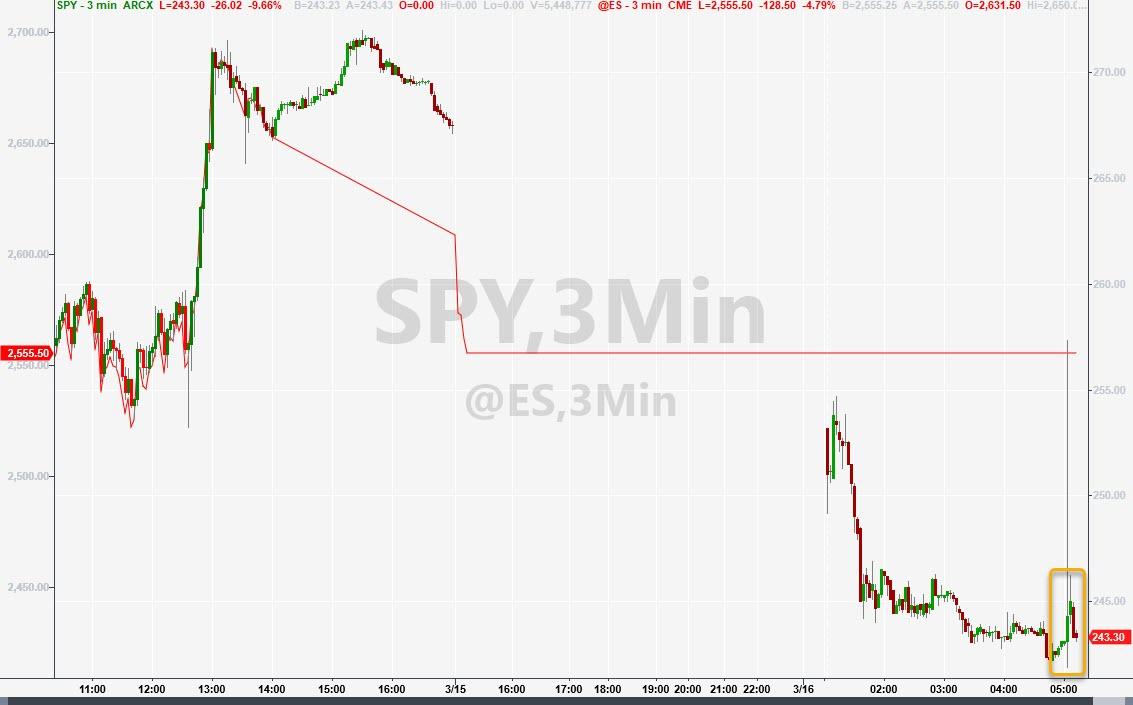The IMF has just fired off a trillion-dollar "bazooka" of its own Monday morning.
In a blog post published minutes ago, IMF Director Kristalina Georgieva issued three "policy prescriptions" that she said should define a "coordinated response" from the developed economies in Europe and the US. In addition to declaring that the IMF has $1 trillion in loan capacity ready to put to work to salve the economic damage caused by the outbreak, Georgieva encouraged governments to spend more, and asked the Fed to consider bulking up its dollar FX swap lines to emerging-market central banks. She also noted that the $42 billion that investors have pulled from EM markets is one of the biggest outflows in history, and will certainly ratchet up financial stressors.
Today, the IMF published a set of policy recommendations that can help guide countries in the difficult days ahead.
What more needs to be done?
Three action areas for the global economy:
First, fiscal.
Additional fiscal stimulus will be necessary to prevent long-lasting economic damage.
Fiscal measures already announced are being deployed on a range of policies that immediately prioritize health spending and those in need. We know that comprehensive containment measures—combined with early monitoring—will slow the rate of infection and the spread of the virus.
Governments should continue and expand these efforts to reach the most-affected people and businesses—with policies including increased paid sick leave and targeted tax relief.
Beyond these positive individual country actions, as the virus spreads, the case for a coordinated and synchronized global fiscal stimulus is becoming stronger by the hour.
During the Global Financial Crisis (GFC), for example, fiscal stimulus by the G20 amounted to about 2 percent of GDP, or over $900 billion in today’s money, in 2009 alone. So, there is a lot more work to do.
Second, monetary policy.
In advanced economies, central banks should continue to support demand and boost confidence by easing financial conditions and ensuring the flow of credit to the real economy. For example, the U.S. Federal Reserve just announced further interest rate cuts, asset purchases, forward guidance and a drop in reserve requirements.
Policy steps that we know have worked before—including during the GFC—are on the table. Yesterday, major central banks took decisive coordinated action on monetary easing and opening of swap lines to lessen global financial market stresses.
Going forward, there may be a need for swap lines to emerging market economies.
As the Institute for International Finance said last week, investors have removed nearly $42 billion from emerging markets since the beginning of the crisis. This is the largest outflow they have ever recorded.
So central banks’ policy action in emerging-market and developing economies will need to balance the especially difficult challenge of addressing capital flow reversals and commodity shocks. In times of crisis such as at present, foreign exchange interventions and capital flow management measures can usefully complement interest rate and other monetary policy actions.
Third, the regulatory response.
Financial system supervisors should aim to maintain the balance between preserving financial stability, maintaining banking system soundness and sustaining economic activity.
This crisis will stress test whether the changes made in the wake of the financial crisis will serve their purpose.
Banks should be encouraged to use flexibility in existing regulations, for example by using their capital and liquidity buffers, and undertake renegotiation of loan terms for stressed borrowers. Risk disclosure and clear communication of supervisory expectations will also be essential for markets to function properly in the period ahead.
All this work—from monetary to fiscal to regulatory—is most effective when done cooperatively.
Indeed, IMF staff research shows that changes in spending, for example, have a multiplier effect when countries act together.
What the IMF can do
The IMF stands ready to mobilize its $1 trillion lending capacity to help our membership. As a first line of defense, the Fund can deploy its flexible and rapid-disbursing emergency response toolkit to help countries with urgent balance-of-payment needs.
These instruments could provide in the order of $50 billion to emerging and developing economies. Up to $10 billion could be made.
The Fund already has 40 ongoing arrangements—both disbursing and precautionary—with combined commitments of about $200 billion. In many cases, these arrangements can provide another vehicle for the rapid disbursement of crisis financing. We also have received interest from about 20 more countries and will be following up with them in the coming days.
In addition, the Fund’s Catastrophe Containment and Relief Trust (CCRT) can help the poorest countries with immediate debt relief, which will free up vital resources for health spending, containment, and mitigation. In this regard, I commend United Kingdom’s recent pledge of $195 million, which means the CCRT now has about $400 million available for potential debt relief. Our aim, with the help of other donors, is to boost it to $1 billion.
In this way, the IMF can serve its 189 member countries and demonstrate the value of international cooperation. Because, in the end, our answers to this crisis will not come from one method, one region, or one country in isolation.
Only through sharing, coordination, and cooperation will we be able to stabilize the global economy and return it to full health.
* * *
The markets were clearly unimpressed with last night's coordinated policy response from central banks, so how did the market react to the IMF's call for coordinated fiscal and monetary action?
We saw a slight blip, that has already faded.
Despite throwing trillions at the market, nothing is stopping the freefall as it become clearer that what the market really wants is not a 'loan' to see it through but helicopter money...and once that has started, will it ever be allowed to stop?








